-

A new scientific event in Gothenburg
Life Science Sweden is holding an event in Gothenburg for the first time.
-

“Research is always a lot of failures and a few successes”
Johan Rockberg at KTH Royal Institute of Technology in Stockholm.
-

A new life science cluster formed – “We are very strong in talent”
Stockholm and Uppsala’s joint life science cluster aims to be among the best in Europe. Pontus Holm, Life Science Coordinator for Region Stockholm, says the decision to create a joint profile for the two cities is strongly supported. He mentions that around 50 stakeholders were asked last winter if they were in favour of a joint cluster and that “the answer was a resounding yes”.
-

Nobel Prize winner Torsten Wiesel turns 100: “Old men like me should use their experience to help the young”
In 1955, a young Torsten Wiesel jumped on a boat to the US and embarked on a fabulous career as a neuroscientist, crowned with a Nobel Prize for his work. Now 100 years old, he looks back on an intense life and his upbringing in Stockholm, Sweden, which shaped his desire to help the vulnerable in society.
-

“Conducting research at universities is becoming more and more like working at a research hotel”
The government wants Swedish research to focus on excellence and innovation, but can the two be combined? Life Science Sweden talks to Anna Falk, a professor at Lund University, about research policy, the constant hunt for funding in academia and what constitutes ‘fine research’.
-

“What is important is to create an overview and understanding from different perspectives”
Scientist Jochen Schwenk analyses blood proteins using proteomics to improve our understanding of disease and health. This year, he is moderating the Lab & Diagnostics of the Future event.
-

The Swedish Academy of Sciences: “We have too many researchers”
Sweden does not need more researchers, but it does need better ones. According to the Royal Swedish Academy of Sciences, funding should be distributed to favour excellence.
-

Founder of Bioarctic, Lars Lannfelt, is honoured: “I want to create something for the future”
It´s like a scientist’s dream: to be the world’s first with a drug that genuinely affects one of our major diseases. Lars Lannfelt and his company Bioarctic have achieved just that, and they are thus making a significant contribution to the history of Swedish medicine. He is now being awarded the Research!Sweden Award 2023.
-

Astra Zeneca’s Sweden CEO: “We have great faith in our portfolio”
It all started with a summer job as an operator at Astra’s chemical factory in Snäckviken, just outside Södertälje. More than three decades and countless different assignments later, Per Alfredsson, born and raised in Södertälje, is CEO of Astra Zeneca Sweden, which employs 7800 people in Södertälje, Stockholm and Gothenburg. “It was a very special feeling to be in charge of the entire organisation,” he says in an interview about his career and potential future blockbusters.
-
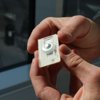
From the sea of Åland to a self-test for lithium
Four years ago, a meeting on the sea of Åland resulted in the development of a self-test for lithium levels in the blood. The hopes are that the test will be available for individuals with bipolar disorder in the future.
-
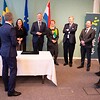
Extensive agreements signed at Scilifelab
Four agreements were signed between Swedish and Dutch life science players in connection with the Dutch state visit earlier this month.
-

Bought a tablet factory – and built his own empire
In 1995, Thomas Eldered was CEO of one of Pharmacia’s factories in the Stockholm area when the Swedish pharmaceutical giant, after a takeover, decided to move its production abroad. 34-year-old Thomas was facing an imminent risk of losing his job. However, instead, it actually turned out to be the starting point for one of the biggest success stories in Swedish life science.
-
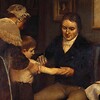
The first vaccine derived from cowpox
The British rural doctor could not forget the words of the peasant girl. Could that really be true? A couple of decades later, on 14 May 1796, he performed the world’s first smallpox vaccination, and a medical breakthrough had occurred.
-
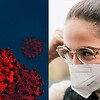
Ny modell ger ytterligare stöd för munskydd: ”Ger ett utmärkt skydd”
Forskare vid bland annat Chalmers har tagit fram en modell för att mäta hur virus färdas genom luften – och hur effektivt munskydd är för att hindra smittspridning. Deras slutsats: rätt munskydd, buret på rätt sätt, ger ett utmärkt skydd.
-
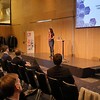
Genterapier och vaccin dryftas på branschmötet
-
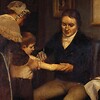
Kosmitta gav vaccin mot smittkoppor
Bondflickans ord ville inte lämna den brittiske landsortsläkarens huvud. Kunde det verkligen stämma? Ett par decennier senare, den 14 maj 1796, genomförde han världens första smittkoppsvaccination – och ett medicinskt genombrott hade skett.
-

Orsakssamband mellan överflödigt kroppsfett och hjärtkärlsjukdom
Det är skillnad på att riskfaktorer faktiskt orsakar en sjukdom eller bara förekommer i samband med dem. Genom så kallad Mendelsk randomisering visar KI-forskare att det finns ett orsakssamband mellan högt BMI och fler hjärtkärlsjukdomar.
-
Epilepsigener pekar mot ny behandling
I den största internationella studien i sitt slag har 11 nya gener kopplade till epilepsi upptäckts.
-
Jämställdhet brister för kvinnliga kemister
Andelen kvinnliga professorer vid kemiinstitutioner har ökat från knappt fem procent till cirka 9 procent mellan 2005 och 2015, vid brittiska universitet.
-
Stort intresse för migränstudie
Intresseanmälningarna att delta i klinisk studie har överträffat förväntningarna.
-
Immunovia i nytt samarbete
Tecknar avtal med andra centret inför en klinisk studie med sitt diagnostiska test för pankreascancer.
-
Ny vd på Lundbeck
Det danska läkemedelsföretaget knycker chef från Novo Nordisk.
-
Anders Persson får brittiskt medicinpris
Anders Persson prisas med brittiskt forskningspris.
-
Strokefinder testas i England
Medfield Diagnostics har inlett samtal om testinstallationer för sin produkt Strokefinder på två sjukhus i London.
Få tillgång till allt innehåll på Life Science Sweden
Ingen bindningstid eller kortinformation krävs
Redan prenumerant? Logga in
Gäller endast personlig prenumeration.
Kontakta oss för en företagslösning.